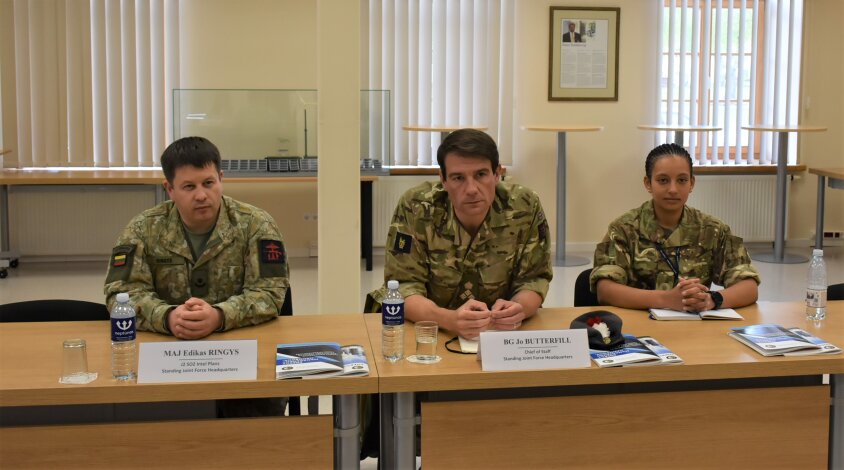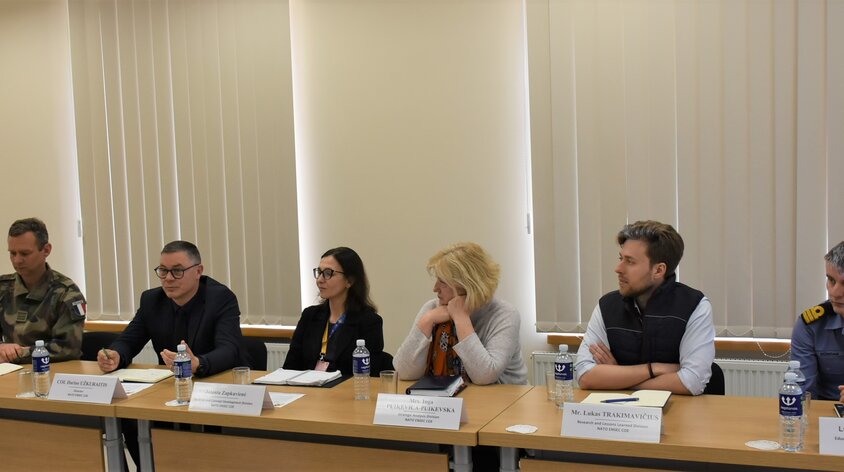The NATO Energy Security Centre of Excellence was visited by Joint Expeditionary Forces delegation
On 13th of May Joint Expeditionary Forces (JEF) delegation visited the NATO Energy Security Centre of Excellence. The delegation head, Chief of JEF Staff BG Jo Butterfill, was welcomed by the Centre’s director Colonel Darius Užkuraitis.
At the start of the meeting COL Darius Užkuraitis introduced the NATO ENSEC COE structure, mission and growing demand.
During the meeting LCDR Özgür DÜNDAR, Subject Matter Expert (SME) from Education, Training and Exercise Division, overviewed courses and Coherent Resilience exercises. Jolanta Zapkuvienė SME from Doctrine and Concept Development Division, presented the concept on the “Operational Energy” and Energy Management Handbook. Inga Puikevica-Puikevska, the Subject Matter Expert from Strategic Analysis Division, presented studies. Lukas Trakimavičius, the Subject Matter Expert from Research and Lessons Learned Division, presented the NATO “Green Defence” framework.
BG Jo Butterfill did the presentation about the Standing Joint Force Headquarters Group mission, structure and command. It was also overviewed the Potential Operational Employment Frameworks.
At the end of the meeting it was discussed about possible cooperation between NATO ENSEC COE and JEF.
The NATO ENSEC COE was established on 10th of July and accredited on 12th of October, 2012. Currently it operates as a widely recognized international military organization with the aim of providing qualified and appropriate experts advices on questions related to operational energy security.
The mission of the NATO ENSEC COE is to assist Strategic Commands, other NATO bodies, nations, partners, and other civil and military entities by supporting NATO’s capability development process, mission effectiveness, and interoperability in the near, mid and long terms by providing comprehensive and timely subject matter expertise on all aspects of energy security. The mission includes cost effective solutions to support military requirements, energy efficiency in the operational field, and interaction with academia and industry.


